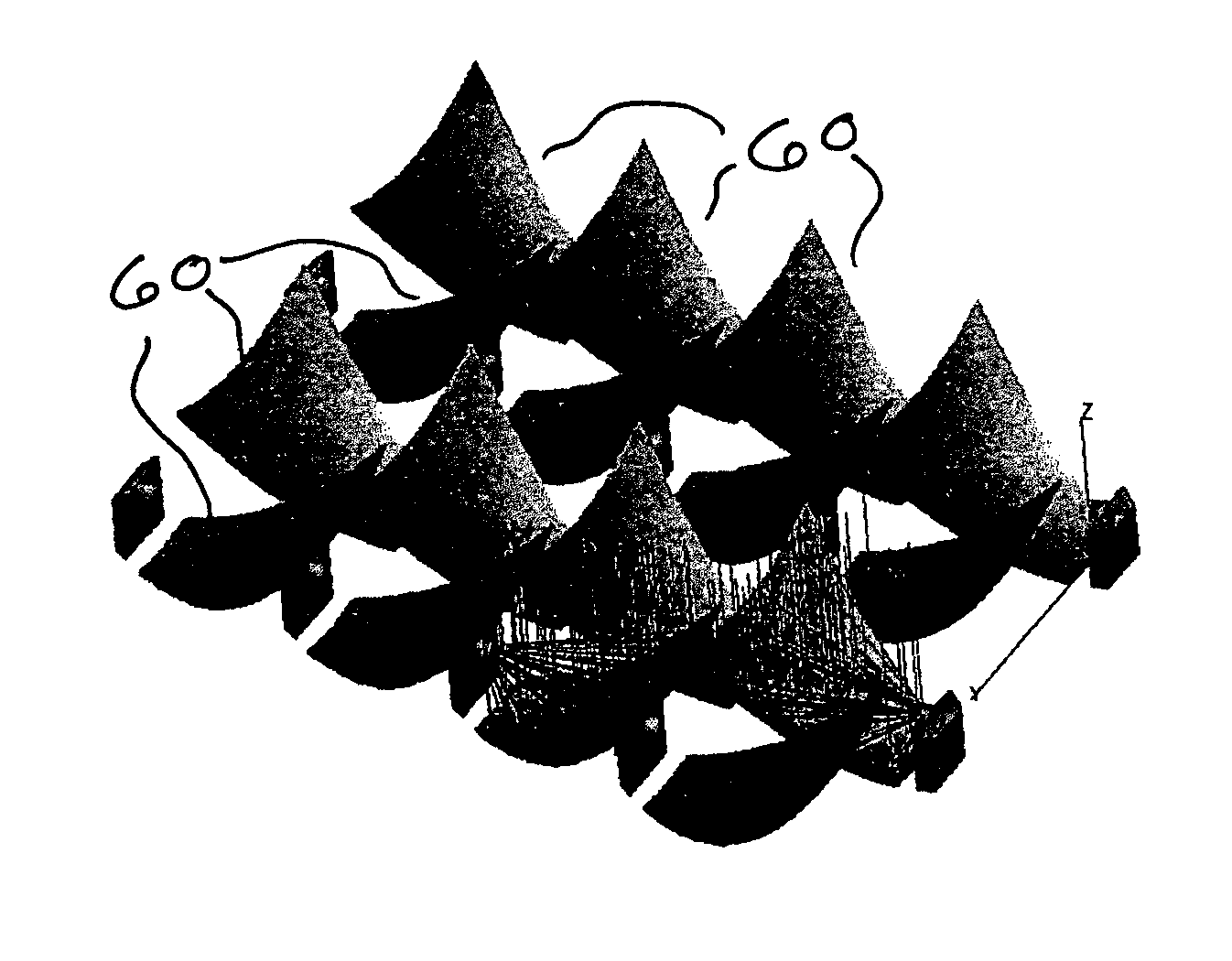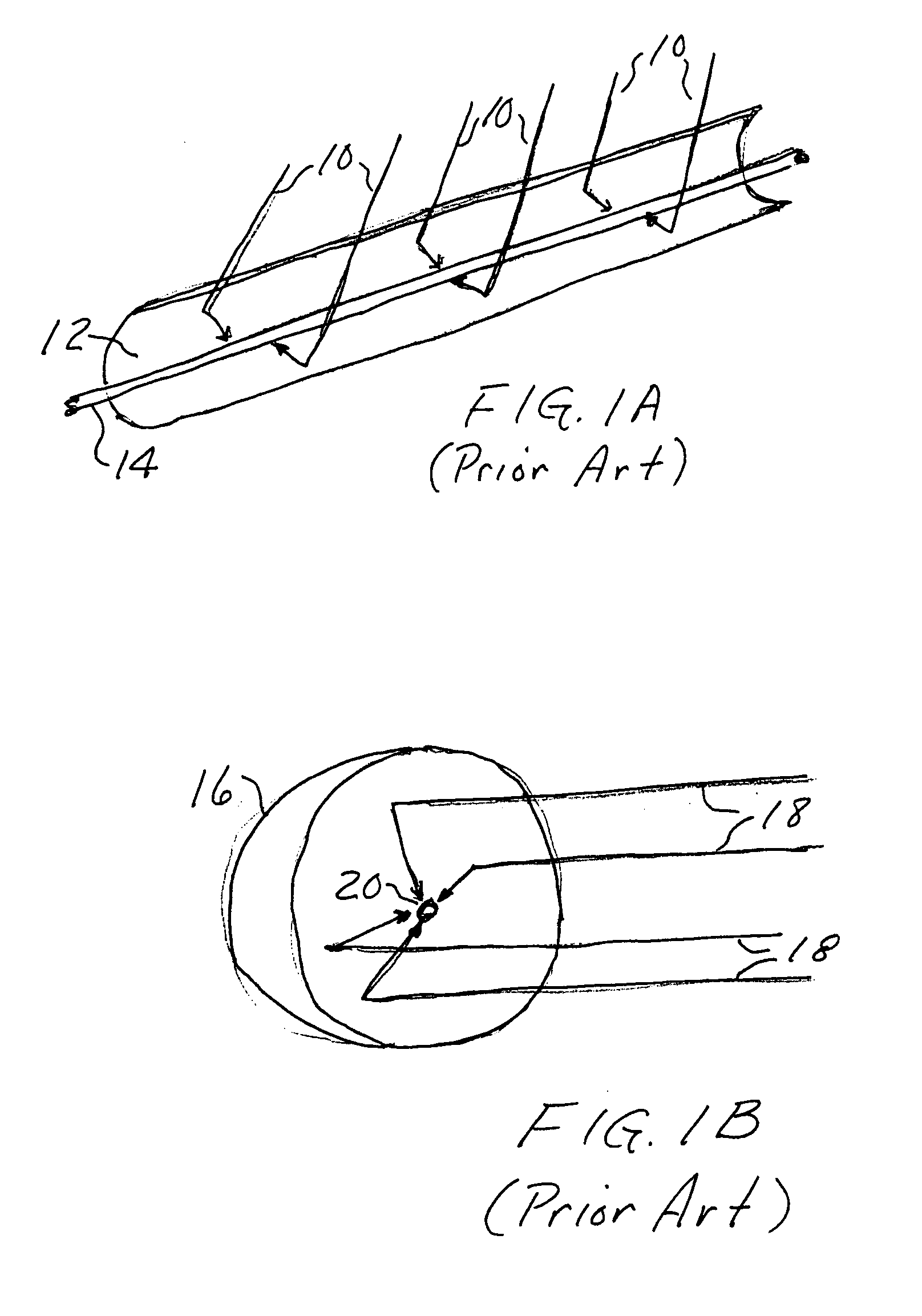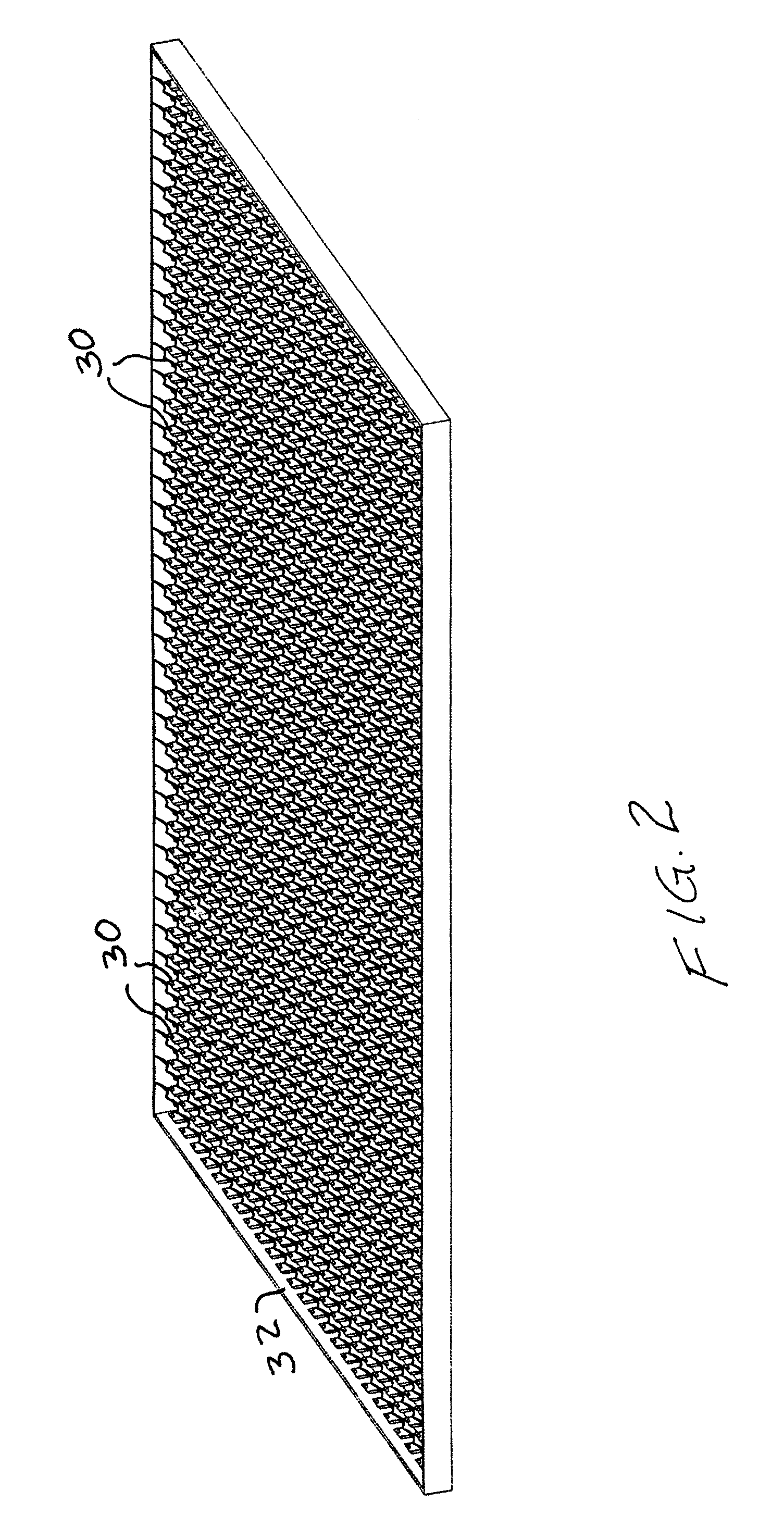Compact micro-concentrator for photovoltaic cells
- Summary
- Abstract
- Description
- Claims
- Application Information
AI Technical Summary
Benefits of technology
Problems solved by technology
Method used
Image
Examples
Embodiment Construction
[0020] The parabolic reflector is a well-known device for receiving and directing energy to a central point, line or region, termed the “focus,” and similarly for transmitting energy radiating from the focus to the reflector and then transmitted outwardly in a beam that is parallel to the axis of the reflector. FIG. 1A is a perspective view of a prior art linear parabolic reflector in which energy such as radiant energy 10 striking the reflector 12 is directed to a line focus 14, for use in low concentration photovoltaic systems. Similarly, the parabolic dish 16 of FIG. 1B receives radiant energy and transmits the energy to a central point, or focus 20. Alternatively, energy radiating from the focus 20 to dish 16 can be transmitted outwardly in a beam 18 that is parallel to the axis of the dish.
[0021] In accordance with the present invention, a compact micro-concentrator for photovoltaic cells, for example, is provided in which a plurality of radiation reflectors, each comprising a...
PUM
 Login to View More
Login to View More Abstract
Description
Claims
Application Information
 Login to View More
Login to View More - R&D
- Intellectual Property
- Life Sciences
- Materials
- Tech Scout
- Unparalleled Data Quality
- Higher Quality Content
- 60% Fewer Hallucinations
Browse by: Latest US Patents, China's latest patents, Technical Efficacy Thesaurus, Application Domain, Technology Topic, Popular Technical Reports.
© 2025 PatSnap. All rights reserved.Legal|Privacy policy|Modern Slavery Act Transparency Statement|Sitemap|About US| Contact US: help@patsnap.com



